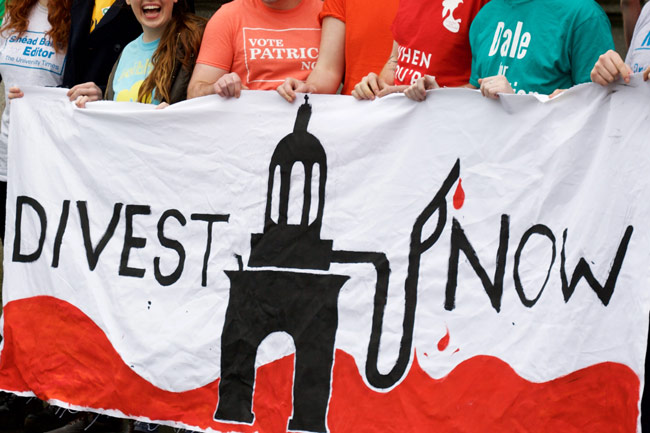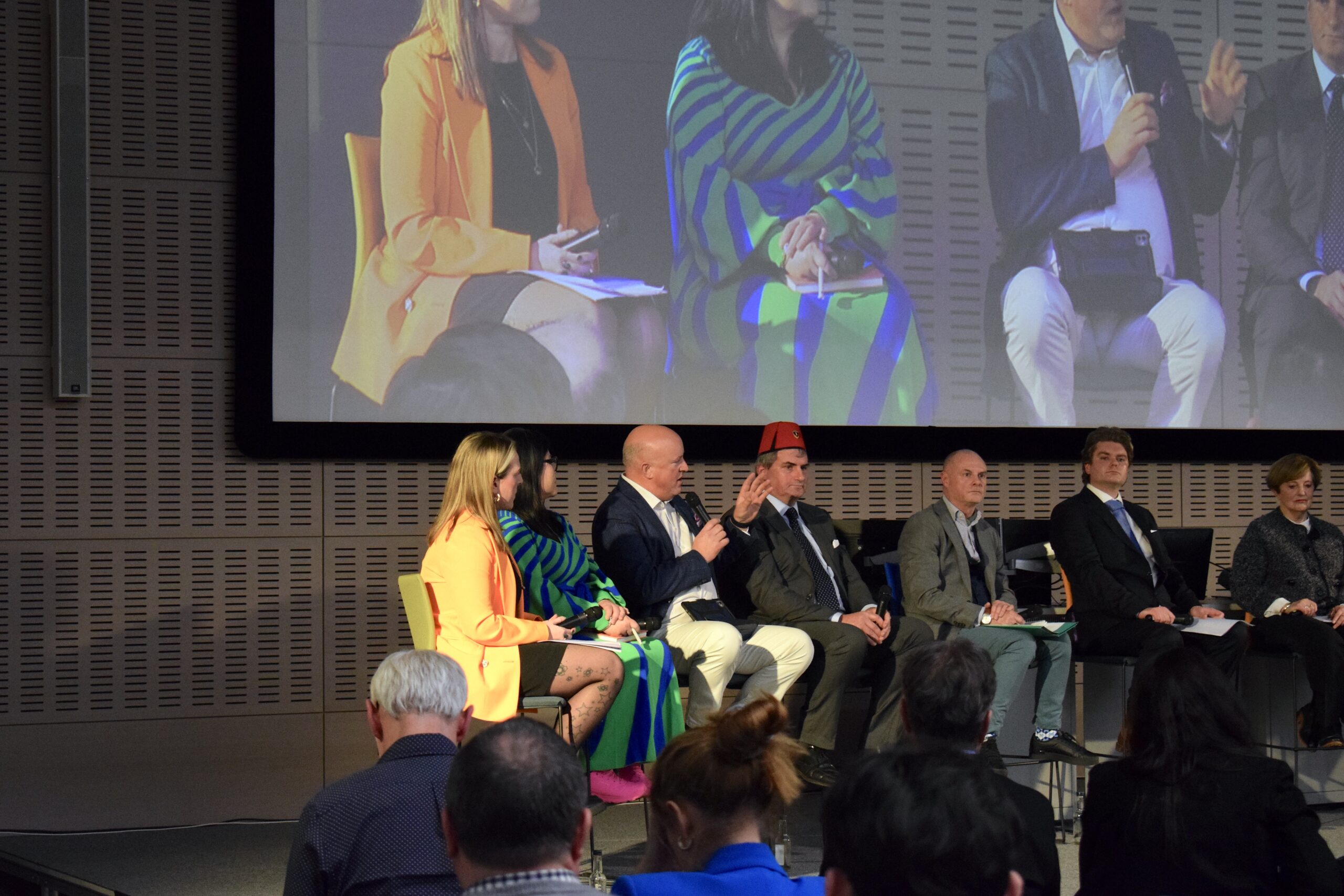Trinity is to divest the €6.1 million it has indirectly invested in fossil fuel companies in a development that comes after months of lobbying and campaigning from campaign group Fossil Free TCD.
Speaking to The University Times, Tom Molloy, Trinity’s Director of Public Affairs and Communications, confirmed a story in today’s Sunday Times in which Ian Matthews, Trinity’s Chief Financial Officer (CFO) said that Trinity was to divest, stating: “Trinity wants to be a leader in sustainability, not only in investments, but in how it operates the campus.” Molloy declined to comment further.
The decision came about after a “cogent argument for divestment” from students, Matthews said. Lobbying from Fossil Free TCD began in October last year after a Freedom of Information (FOI) request revealed the extent of Trinity’s divestments.
Speaking to The University Times, one of the founding members of Fossil Free TCD, Áine O’Gorman, confirmed that that the College’s Investment Committee agreed to divest on Tuesday after a presentation from the campaign on the merits of divestment and the alternative investments the university could make.
O’Gorman said that the group had believed that the decision needed approval from Trinity’s Finance Committee and College Board before Trinity would announce it was divesting.
She praised Trinity’s engagement with the campaign, describing the campaign’s experience with the university as “fantastic”. O’Gorman said the decision makes Trinity’s campaign “one of the fastest divestment campaigns in the world”. The decision means “Trinity is joining a global movement”, she said.
Speaking to The University Times, President of Trinity College Dublin Students’ Union (TCDSU), Kieran McNulty, stated that he was “delighted” with Trinity’s decision. “I think that TCD Fossil Free has been the best example of students making change”, he stated, adding that he was “proud” that the union could support the group.
The campaign has the support of both TCDSU and Trinity’s Graduate Students’ Union (GSU) after votes at meetings of the two unions’s council earlier this year.
O’Gorman said that Fossil Free TCD would be meeting with the university tomorrow to plan “a big public announcement”.
In October The University Times revealed the findings of a freedom of information requested submitted by to the university that showed that as of June 30th 2015, Trinity had €6.1 million indirectly invested in oil-related stocks through its investment in funds managed by Irish Life Investment Managers, an asset-management group. This figure equates to 3.5 per cent of the total value of Trinity’s €170 million endowment fund.
An open letter calling on Trinity to divest from fossil fuels, signed by more than 80 public figures including 27 Trinity professors and world-famous linguist and philosopher Noam Chomsky, was formally presented to the College Board on March 30th of this year by the Fossil Free TCD Campaign. O’Gorman, speaking to The University Times in April, said that the College Board agreed with all the motives for divestment at the meeting in March.
In July, Trinity’s Fossil Free TCD campaign group became the first Irish delegation to attend “People and Planet’s” renowned Summer Gathering event in Oxford. The annual July conference is widely regarded as one of the leading student activist events in the UK.
In recent years, the pressure for universities around the world to cut their investments in the fossil fuel industry has increased, with student and faculty campaigns from across the UK and US, including Boston University, Harvard, University of Oxford, University of Glasgow, and many others, calling on their universities to find new alternatives for their endowments.
Queen’s University Belfast launched their own divestment campaign in December 2014, but have faced difficulty in obtaining details of the college’s financial investments. Divest Harvard, the student group calling on the university to divest, has also faced barriers from Harvard Corporation, where since the start of their campaign, in 2009, the university’s fossil fuel investment has risen from $11.8 million to $79.5 million.
This lack of communication between campaign and university was not experienced by Fossil Free TCD, with the College Board engaging with the campaign only five months after the campaign’s launch.
The Chancellor of the University of Dublin, Mary Robinson, who is the former UN special envoy on climate change, and is also the chair of a climate justice foundation set up in her name, has in the past given vocal support to divestment campaigns around the world. At a meeting of the envoy in March last year, Robinson said that “corporations need to look at what contribution we are making to hurting those who are in the front line of being most vulnerable to climate change”.
Sinéad Baker contributed reporting to this piece.







